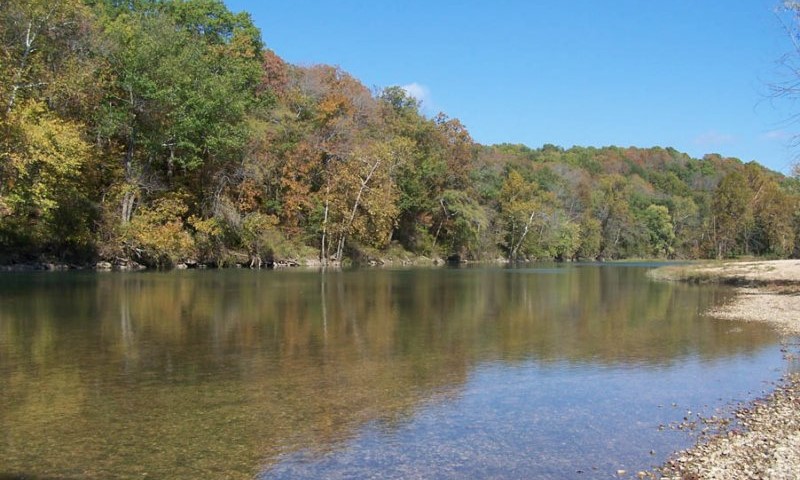
A federal district judge ruled late Tuesday that the State of Oklahoma has sufficiently proven there has not been any substantive change in poultry litter pollution of the Illinois River Watershed (IRW) following trial. The ruling by Oklahoma Northern District Judge Gregory Frizzell included the finding that phosphorus from poultry waste continues to be a significant source of damage to the waters of the IRW and Lake Tenkiller.
While Frizzell has yet to issue a final ruling in the 20-year-old lawsuit, Attorney General Gentner Drummond said he remains confident there can be an agreement that ensures clean water and a robust poultry industry. Drummond talked with Senior Farm and Ranch Broadcaster Ron Hays about the latest word from Judge Frizzell and what he hopes to do in negotiating an acceptable resolution in the matter- listen to Hays and AG Drummond by clicking on the Listen Bar above.
Judge Frizzell’s latest findings, published on June 18, underscore the continued environmental damage despite claims from the poultry industry that conditions had materially changed. Attorney General Drummond elaborated on the significance of this ruling.
“My concern was that the appellate court would be uncomfortable ending injunctive relief with such cold evidence,” Drummond stated, referring to the initial 20-year-old evidence in the case. “So at the request of the state, the court refreshed the evidence, and you were in court with me back in December of 2024, where we were, the burden was on the state to illustrate that the condition of the water had not materially changed, and that poultry continued to be the primary contributor to the pollution, and the judge’s findings that were published on June 18 illustrate the same. So we prevailed in our burden of proof, and now we move forward to negotiating a final judgment.”
Frizzell ruled in favor of Oklahoma in January 2023, but subsequent mediation between the Attorney General’s Office and poultry companies was unsuccessful. Later, the defendants moved to have the suit dismissed, arguing in part that there had been a significant reduction in phosphorus levels since the time of trial.
The judge determined that not to be the case, finding phosphorous concentrations remain alarmingly high in the impacted rivers and streams.
“Phosphorus run-off from land-applied poultry waste continues to be a significant source of phosphorus which is causing actual and ongoing injury to the waters of the Illinois-River Watershed,” Frizzell wrote. “Thus, circumstances have not ‘changed since the beginning of litigation that forestall any occasion for meaningful relief.’ … Accordingly, this matter is not prudentially moot.”
Drummond hopes for a “we win together solution” where the state patiently works with the poultry industry over several years to transition away from discharging waste into the watershed, allowing Mother Nature to cleanse itself. He noted that some poultry litter is already transported outside the watershed, and the aim is to get “closer to 100%,” suggesting a regional solution where phosphorus and nitrogen could be utilized in western Oklahoma, where it’s needed.
The current legal process involves the state proposing a general entry to Judge Frizzell in July, with the poultry industry having the opportunity to respond. However, Drummond prefers a direct negotiation. “What we will do directly with poultry, though, is see if we can’t reach an agreement, so it’s an agreed Journal Entry of Judgment, instead of continuing to litigate, fight and be adversarial.” He cautioned that without an agreement, the judge might have to “split the baby” and impose a solution.
Oklahoma Farm Bureau issued the following statement after Oklahoma Northern District Judge Gregory Frizzell issued a ruling against poultry companies regarding water quality in the Illinois River Watershed.
Oklahoma Farm Bureau is disappointed that Judge Frizzell did not recognize the strides poultry growers have taken to improve water quality in the Illinois River watershed.
From following state-approved nutrient management plans to moving litter out of the watershed, farmers have voluntarily adopted strategies to ensure our land and our water is protected.
These efforts have resulted in a steady decline of phosphorous levels despite increased human population growth in the area, which is a driver of pollution in the watershed.
Oklahoma’s agriculture community is committed to caring for Oklahoma’s resources, which includes the land that farmers and ranchers care for and live on, and our members remain committed to using sound science and proven practices to ensure families all around our state have affordable food on their tables.

















